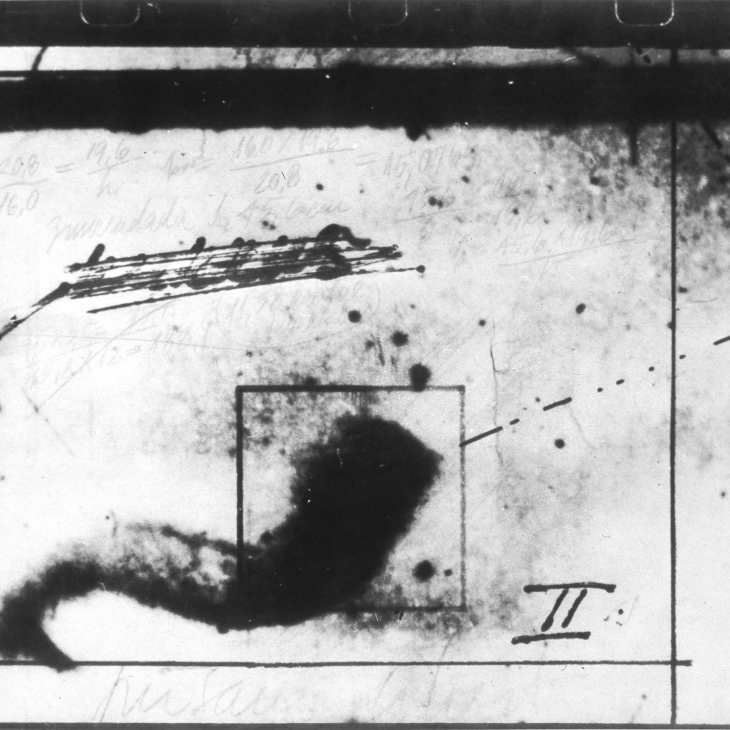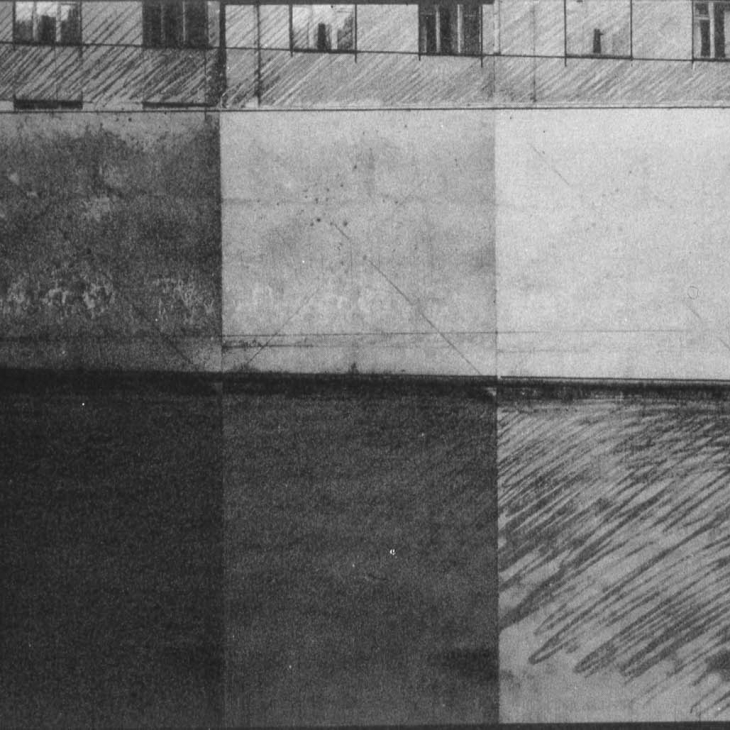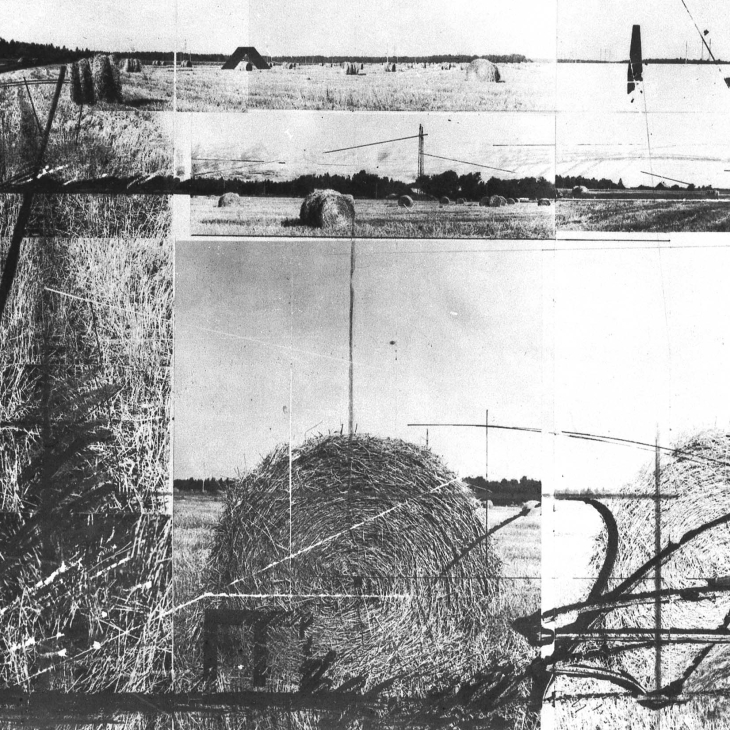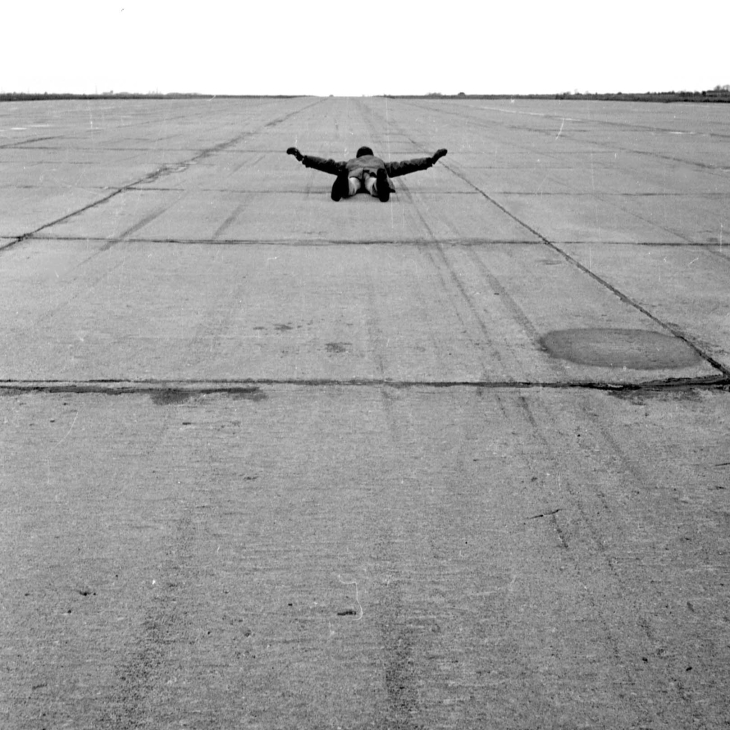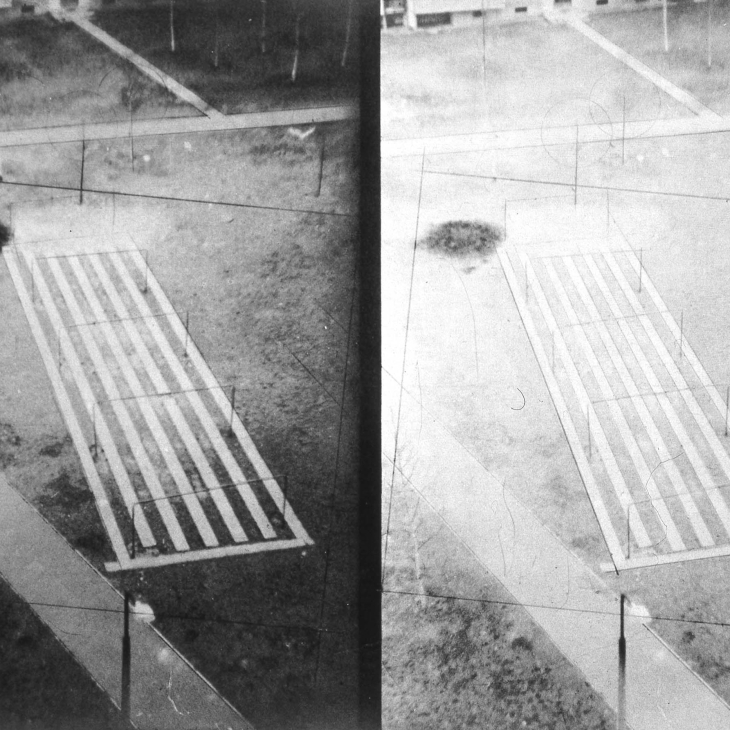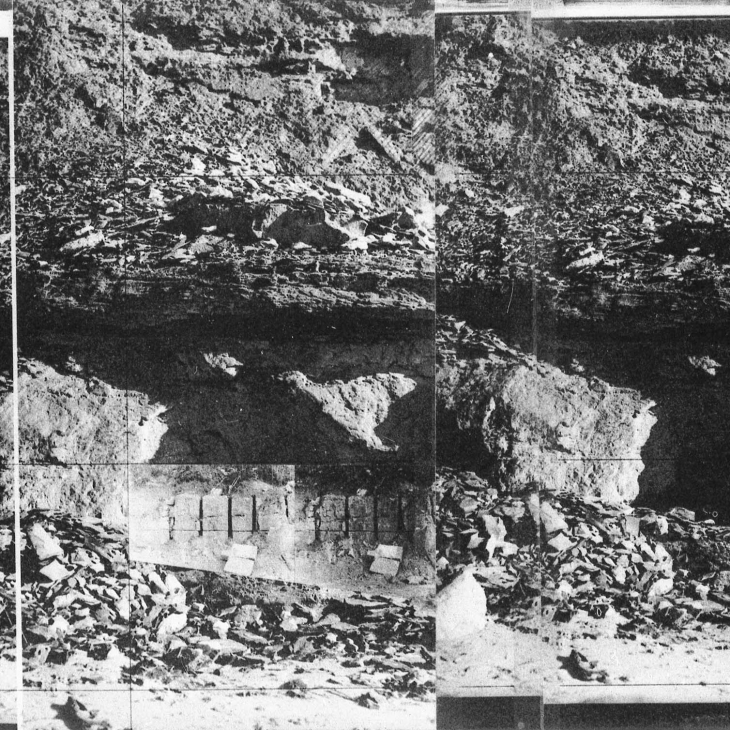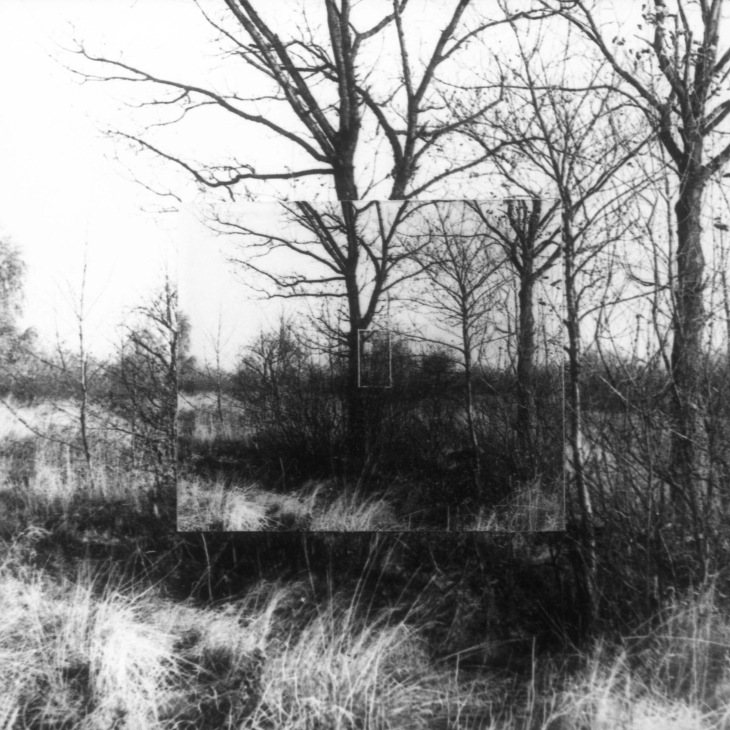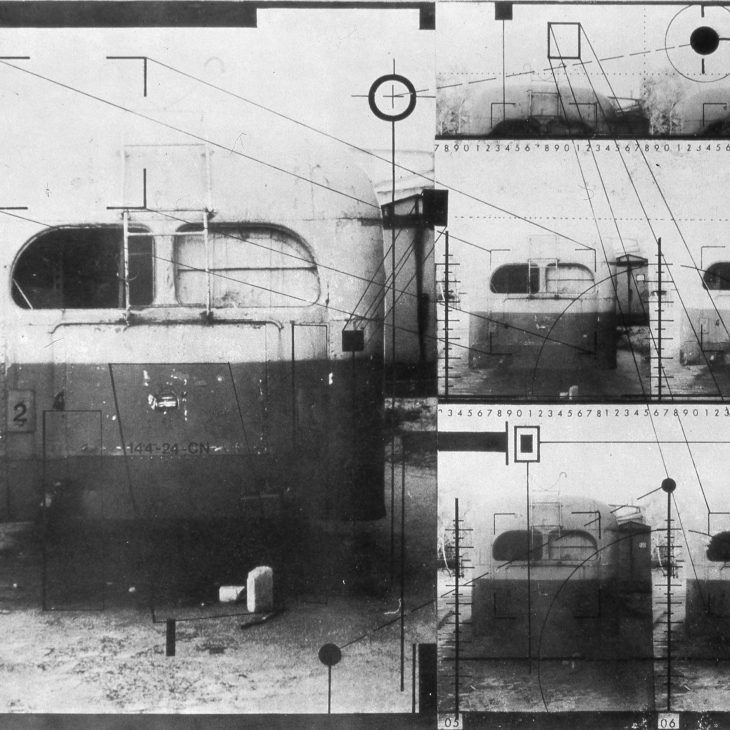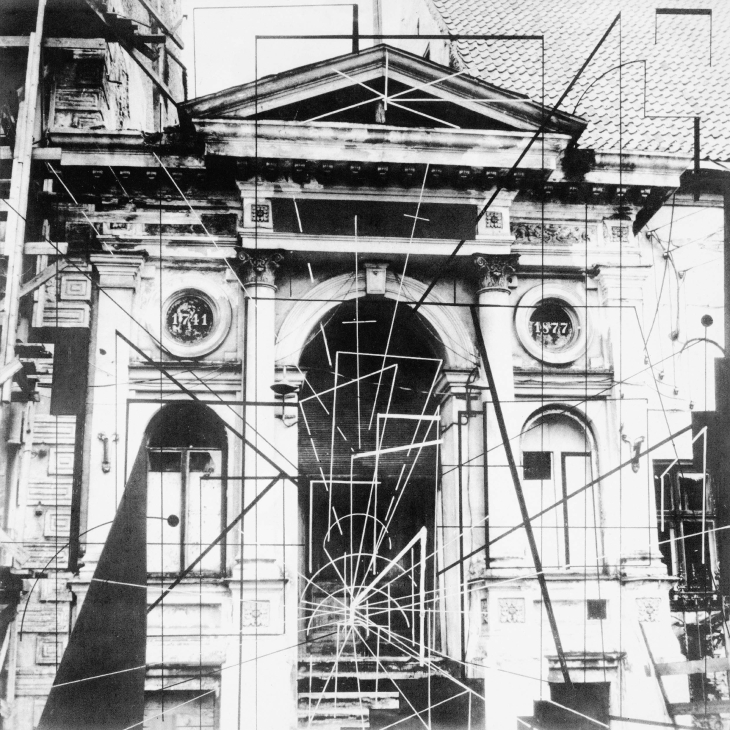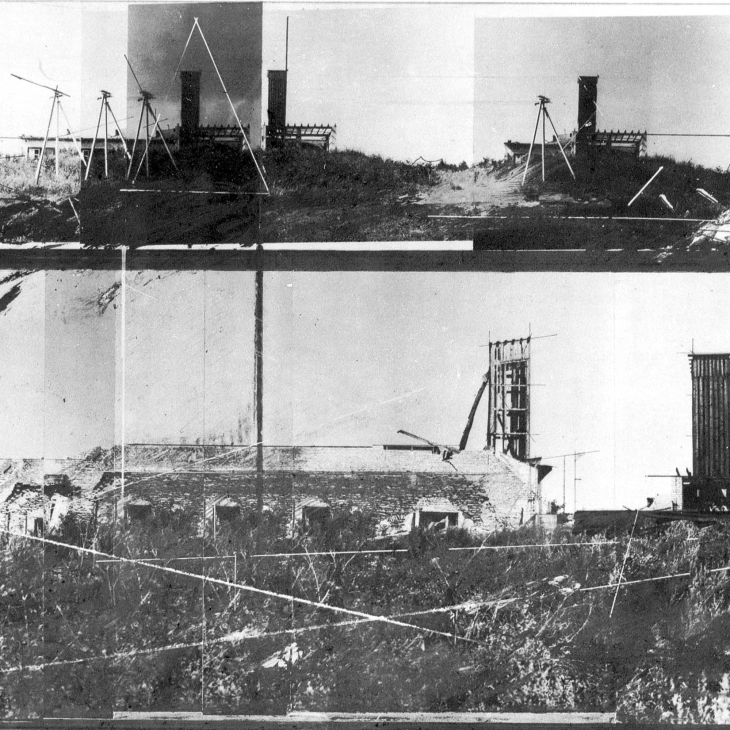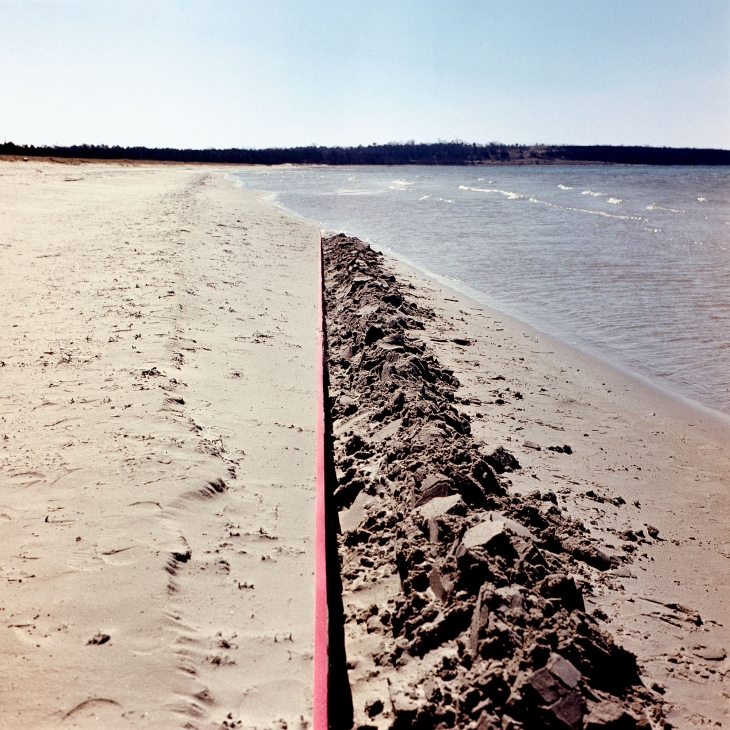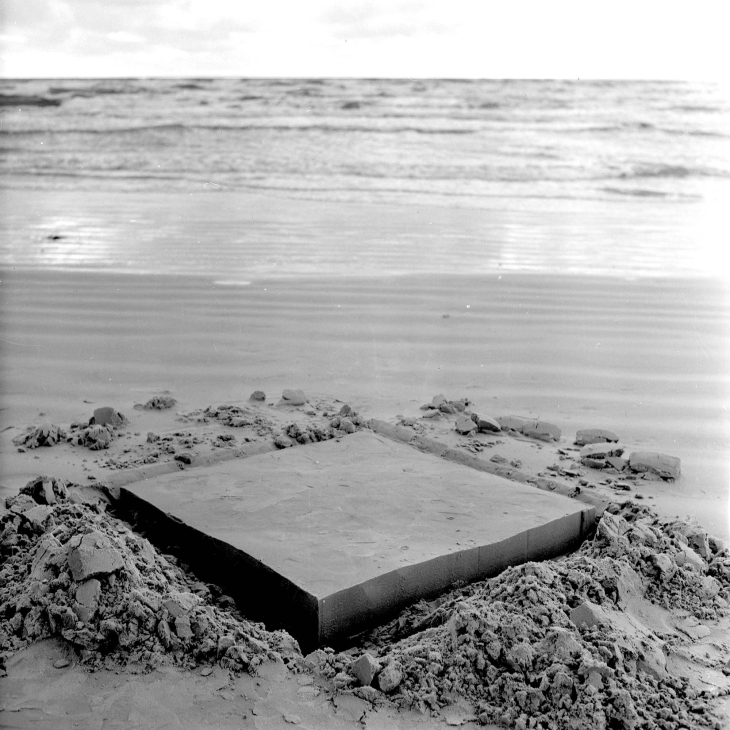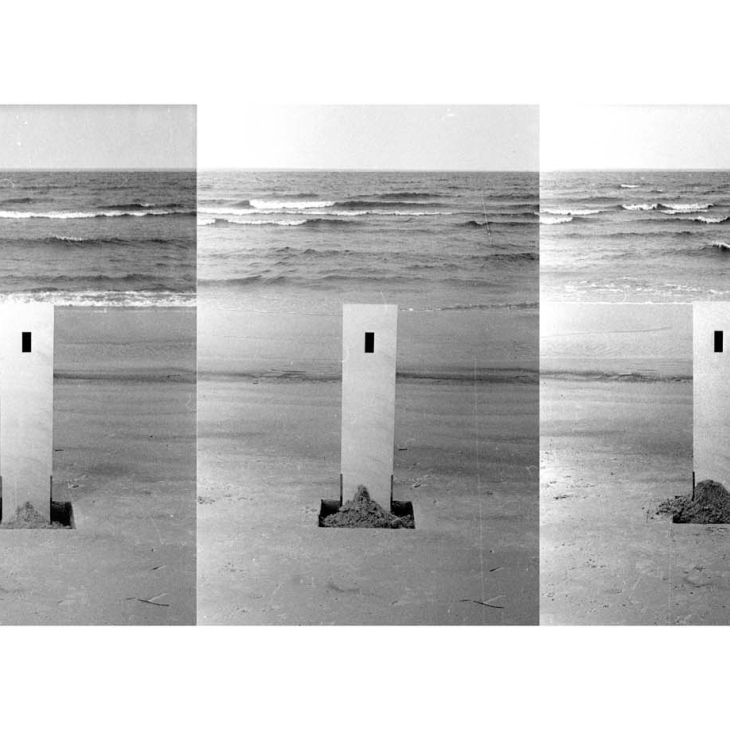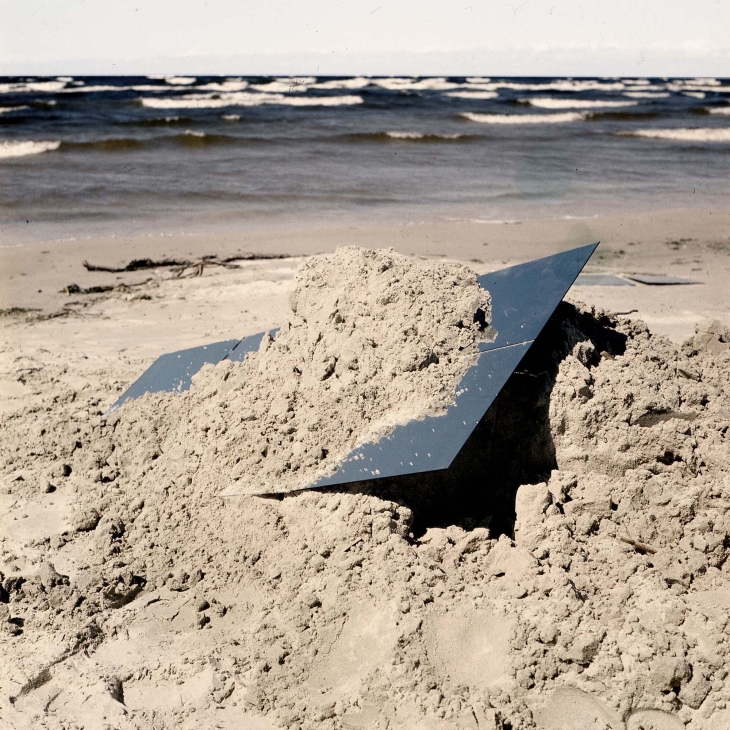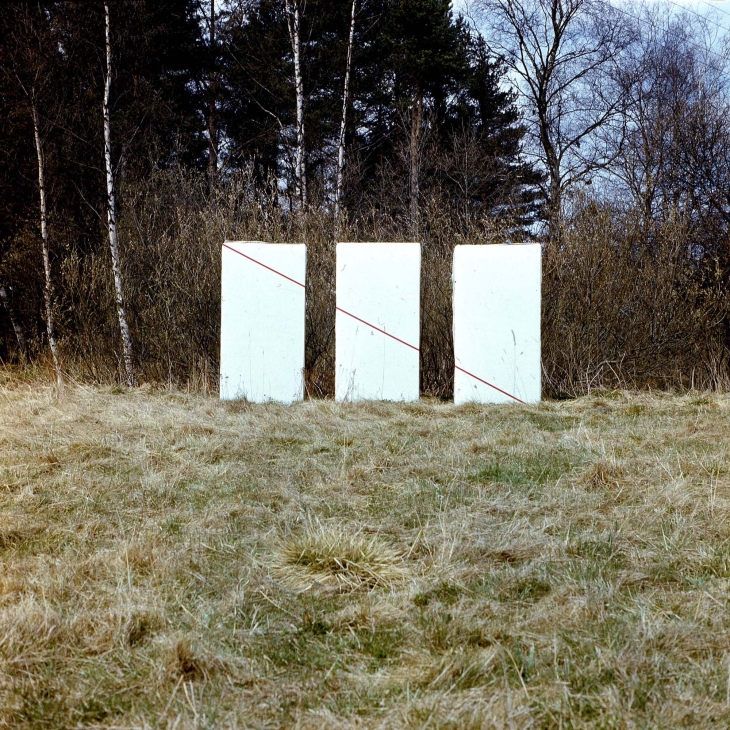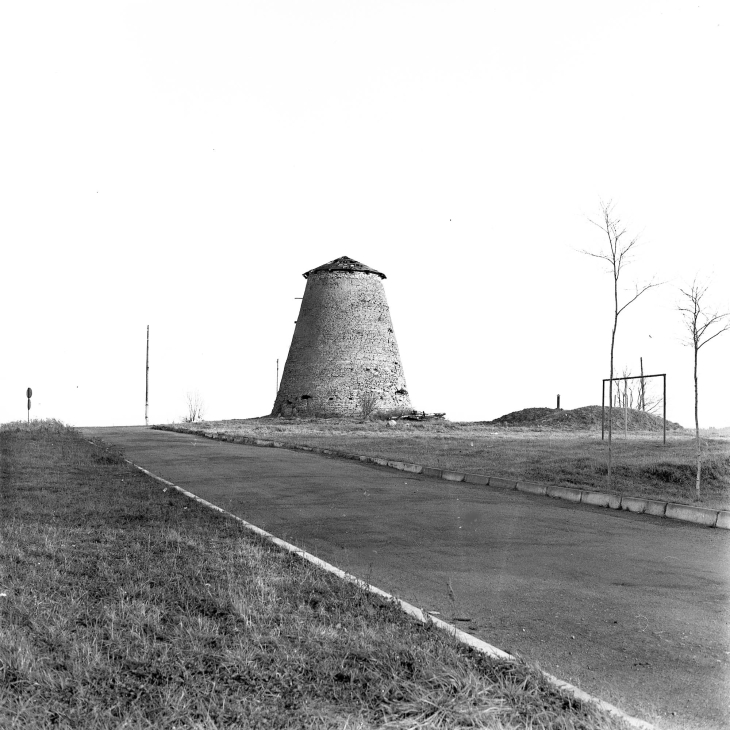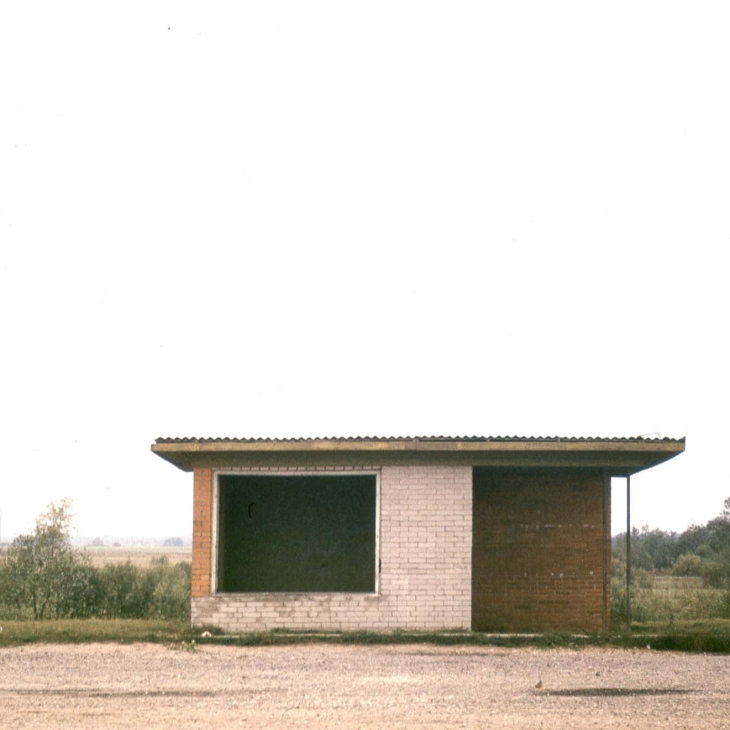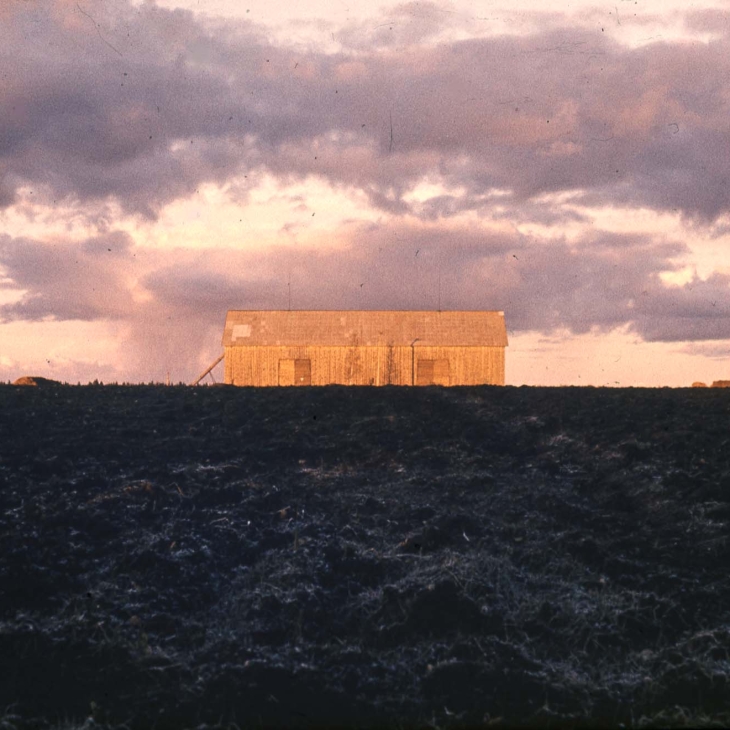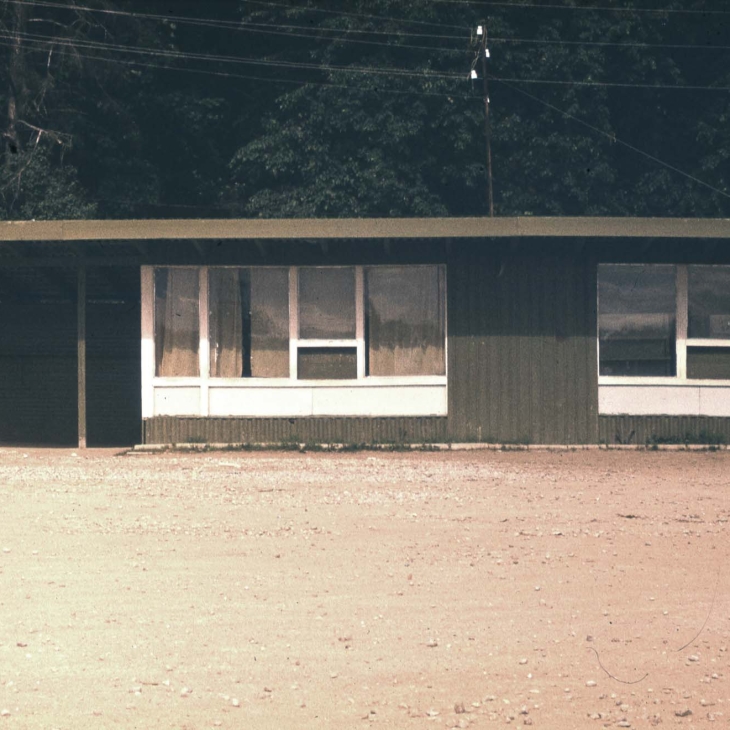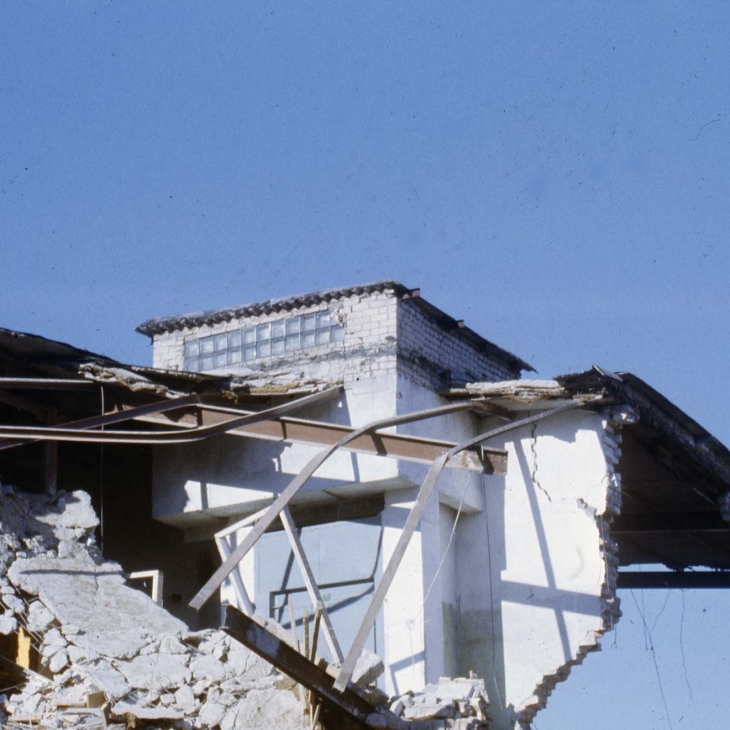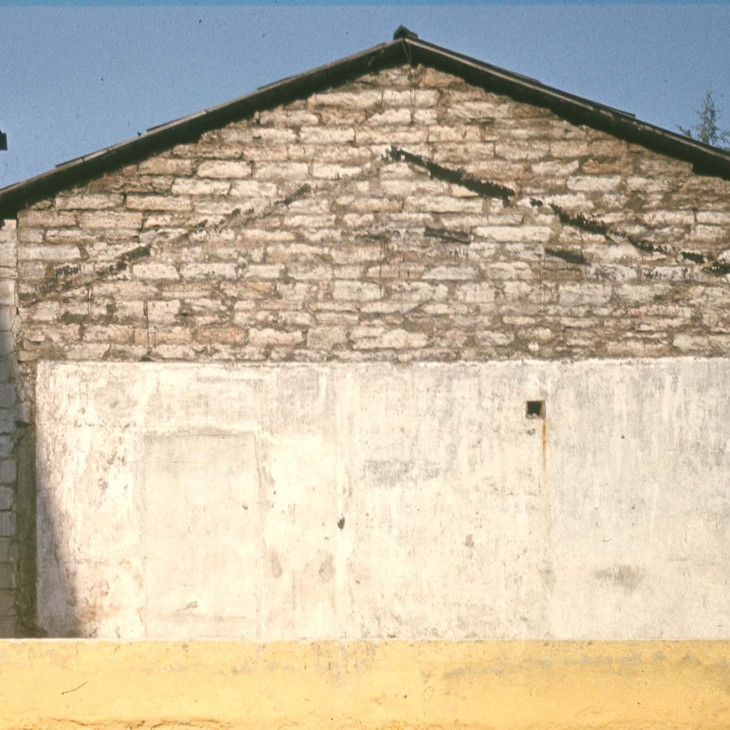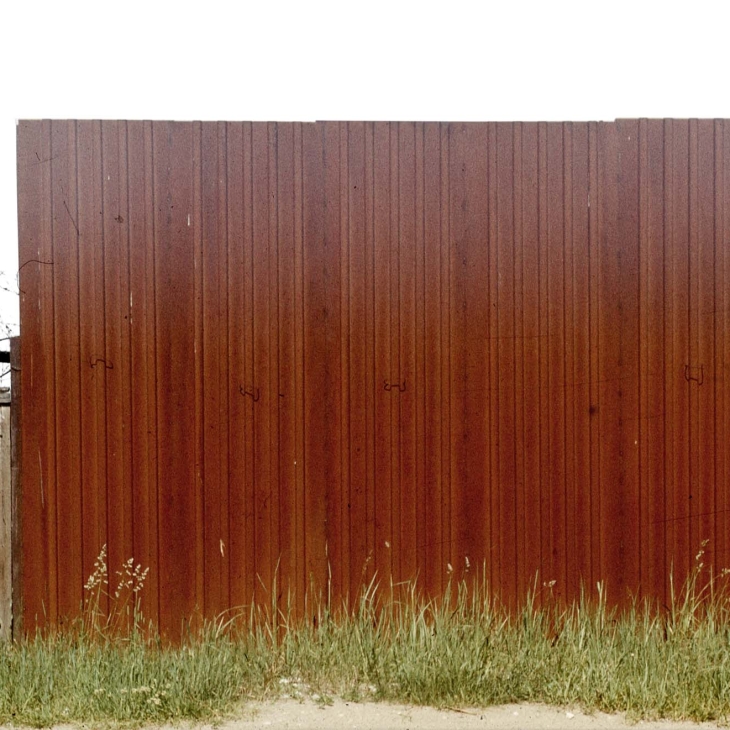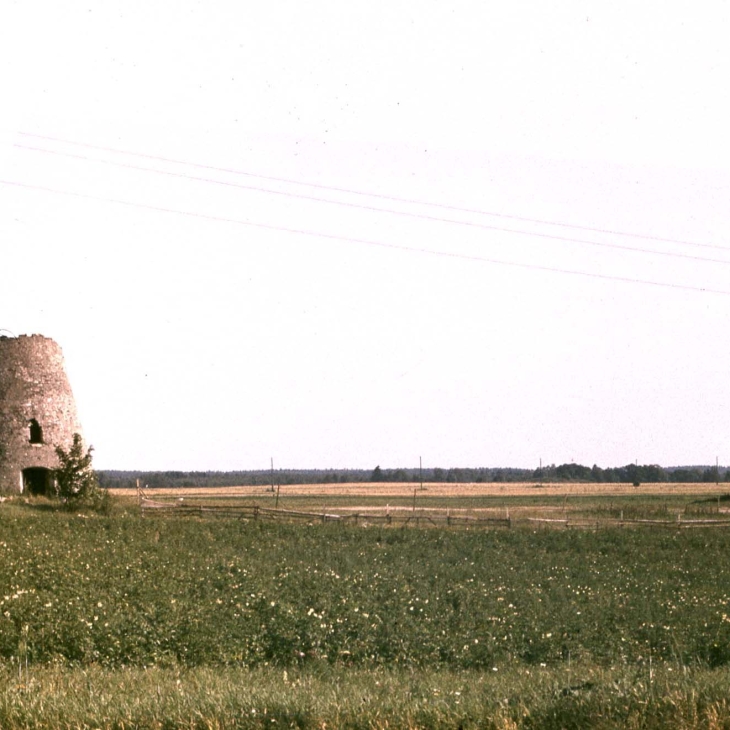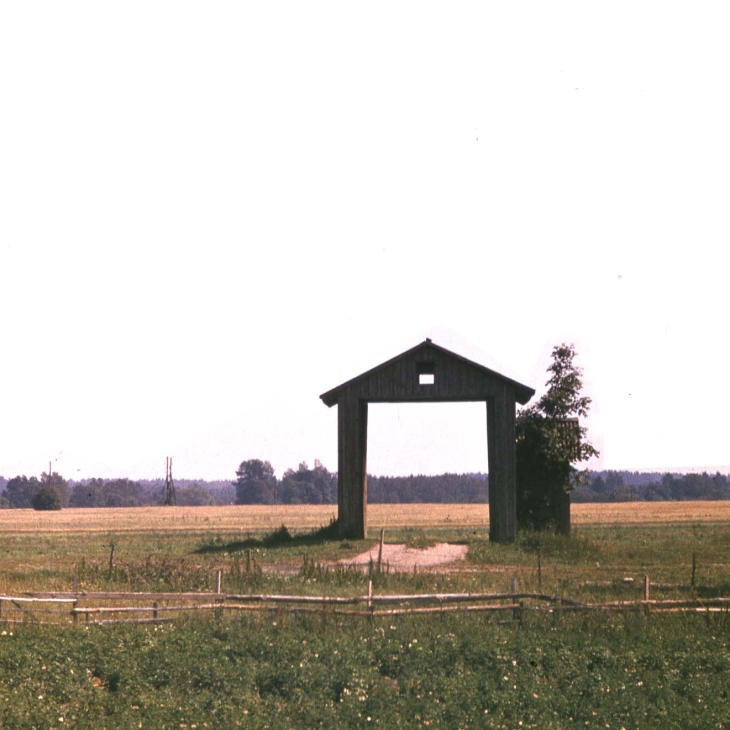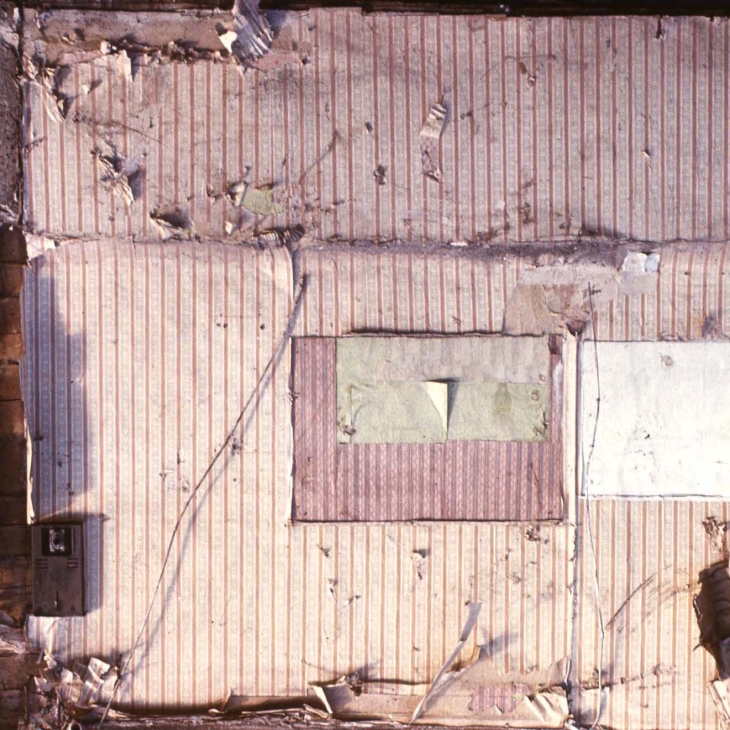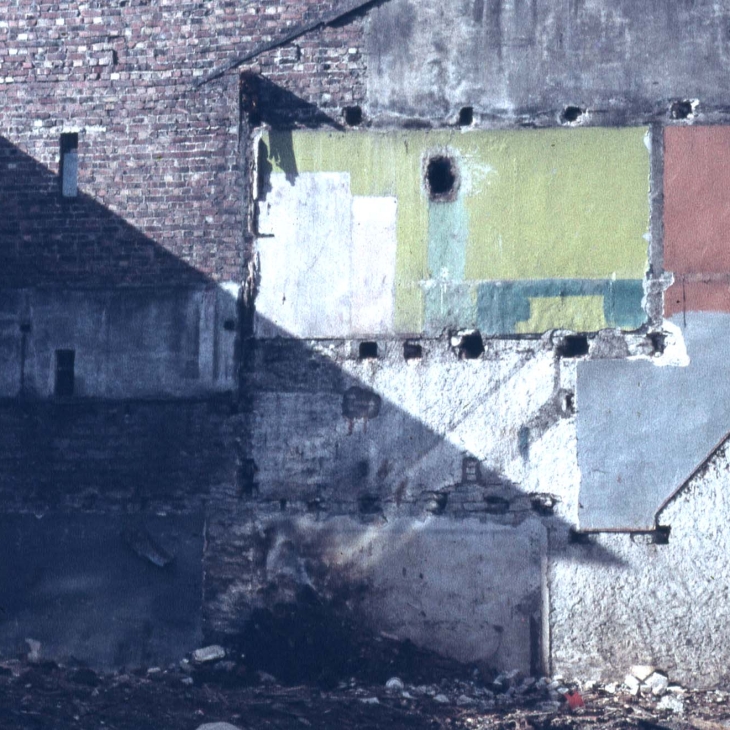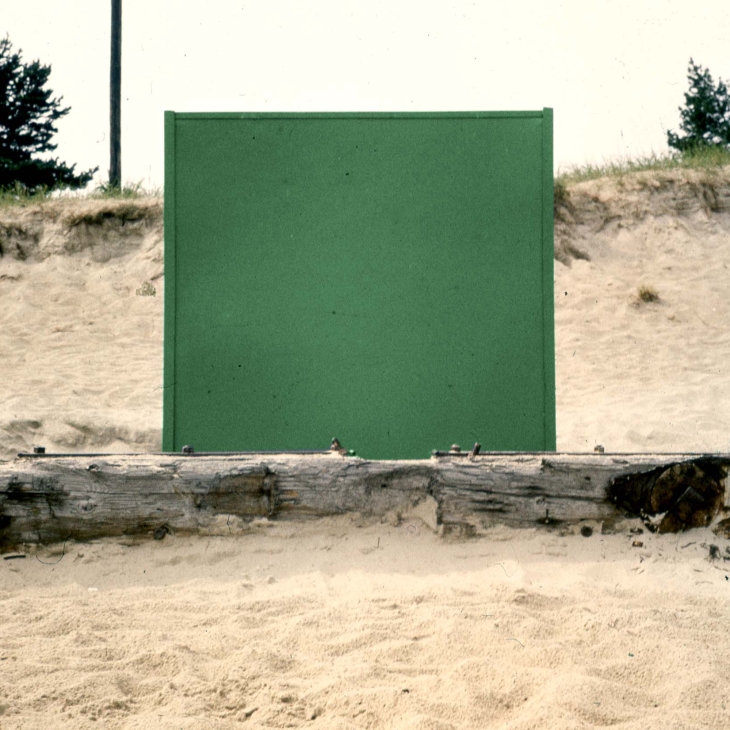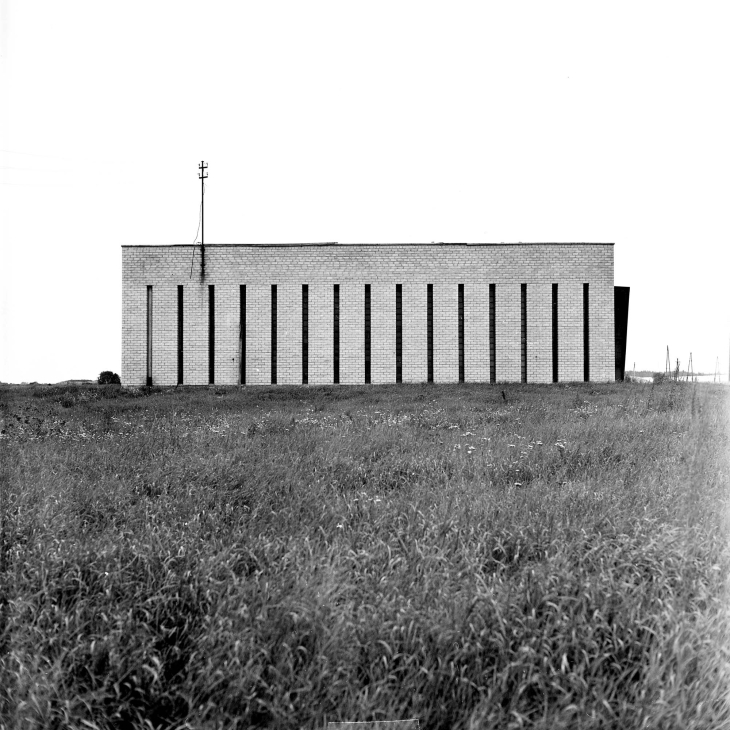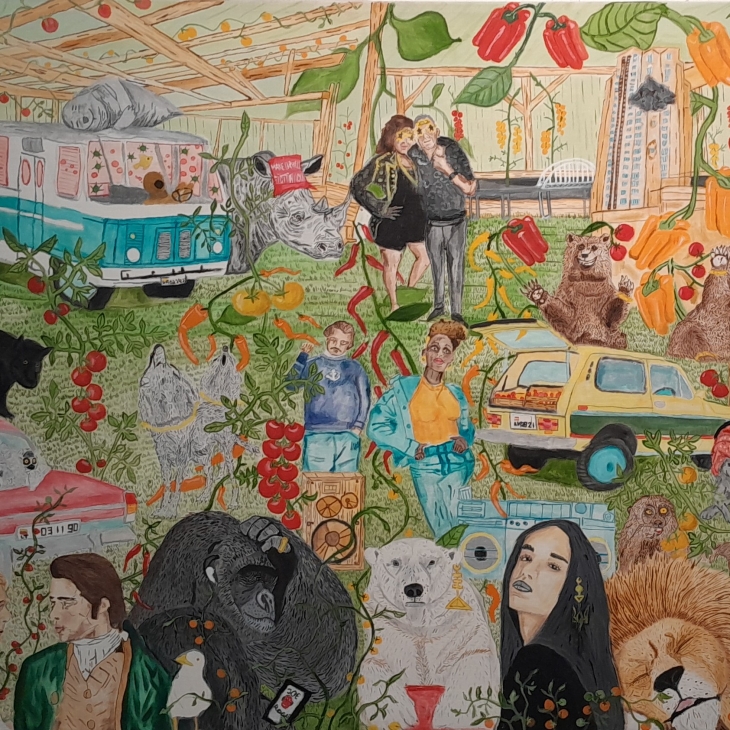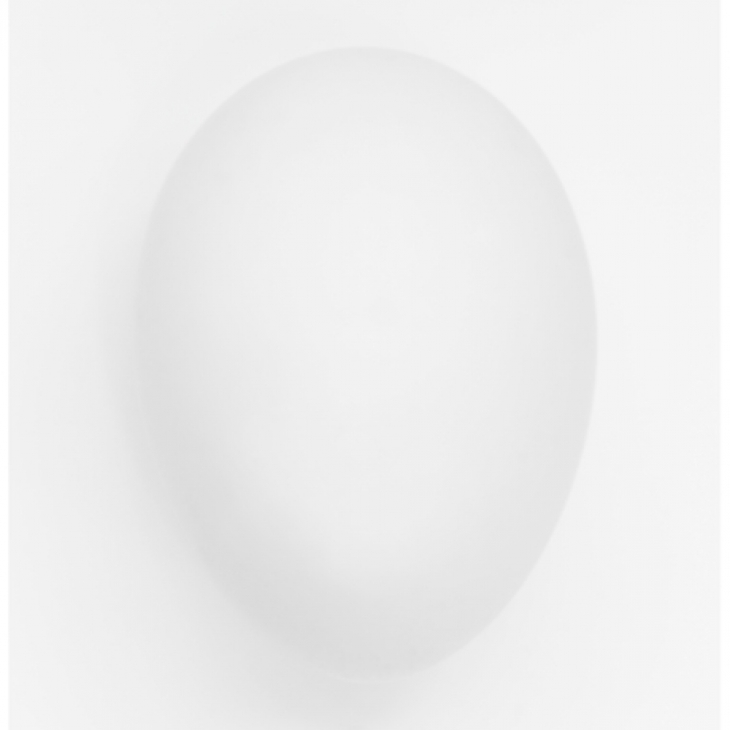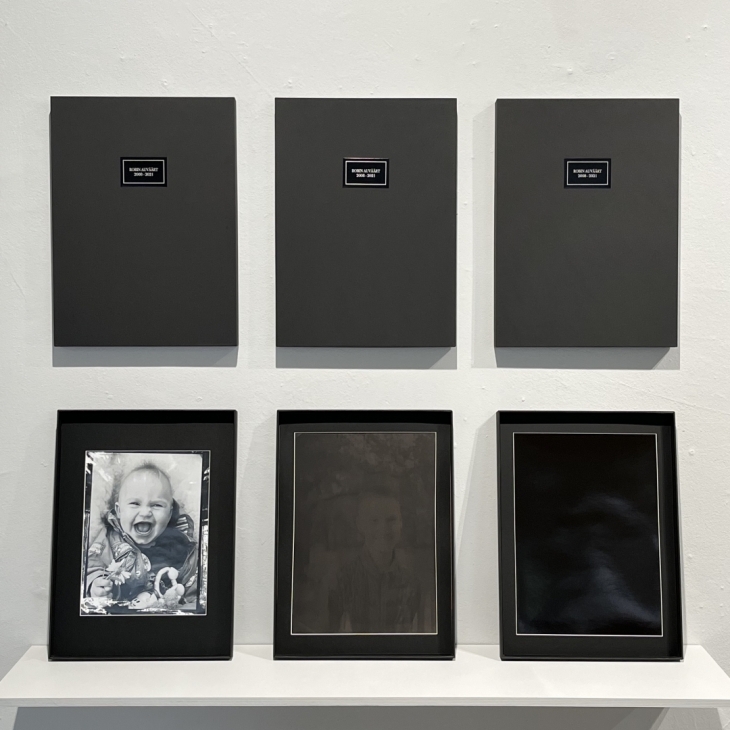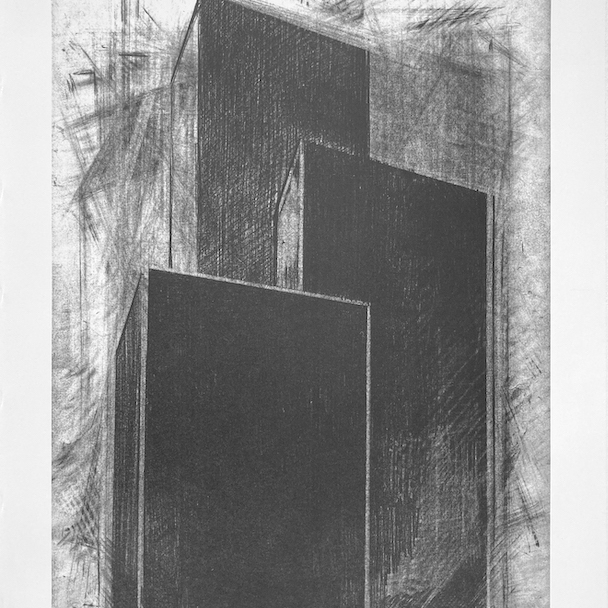VMAS-10, 1974
foto Digiprint on raamitud, signeeritud, dateeritud ainueksemplar, mida ei paljundata. Foto “Väike Moodsa Arhitektuuri Sõnastik” 1974-1986
Jüri Okas published a book in 1995 titled “The Concise Dictionary of Modern Architecture”, summarizing his observations and architectural photographs (1974-1986).
The book, with the first photos dating back to 1974, serves as a philosophical creed of Jüri Okas’ work. He has photographed over 1,000 buildings and structures in Estonia – those without style, odd, misplaced, and often abandoned. The true creator and shaper of these structures is time itself, which has allowed for every temporary necessity – window arches have been closed off, new doorways cut into walls, bay windows added, and rooms later demolished. Solitary and purposeless towers and overpasses complete this absurd colony, whose irrationality stems from an excessive acceptance of rationality.
By studying and attempting to understand the relationship between space and time in architecture, the artist is ultimately dealing with the abstract and hard-to-grasp concept of space. The oddities of these buildings belong to the realm of human folly, while for the artist, folly means projecting this relativity against the backdrop of what is considered orthodox rationality.
Just as Jüri Okas has his own distinct aesthetic, the dictionary has its own ethical foundation. However, Jüri Okas cannot be regarded as a socially critical artist for this reason. His subject matter is unobtrusively intertwined with a sense of absurdity and independence.
The artist raises questions about the rational – irrational, order – disorder, beauty – ugliness, continuity – discontinuity.
Text adapted from Sirje Helme’s contribution to the catalog accompanying Jüri Okas’ exhibition at the Kumu Art Museum (2017).

